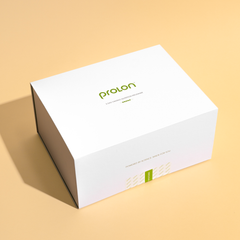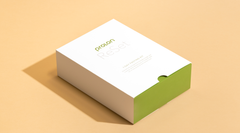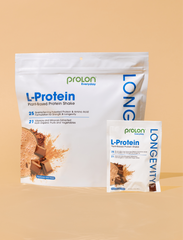
Can I Drink Coffee During Prolon?
Key takeaways:
-
One 8-ounce cup of plain black coffee per day is allowed on the Prolon 5-Day Fasting Mimicking Diet (FMD) - as long as there is nothing else in it
-
Limiting caffeine intake to no more than than 8 ounces, or 240 mL, per day reduces the risk of overstimulating the body’s key nutrient sensing pathways.
-
There are some benefits and drawbacks to including coffee or other caffeinated beverages during a fast.
If you’ve decided to try the Prolon 5-Day Fasting Mimicking Diet (FMD), you might be wondering what to expect—or how it really works. This structured, science-backed nutrition program is precisely formulated to nourish your body while keeping it in a fasting state. And with five days of precision, plant-based meals, it’s simple to follow from start to finish.
To experience the full benefits, it’s important to consume each day’s meals and supplements exactly as outlined. Doing so helps prevent activation of nutrient-sensing pathways that can interrupt your fast. While the FMD includes several sachets of organic herbal teas to enjoy during your fast, one question many coffee lovers still ask is: What about caffeine? Can I still have my morning cup?
In short, the answer is yes, as long as you stick to a few key rules.
Prolon allows some caffeine, but the key is moderation
The Prolon FMD allows you the option of one plain 8-ounce cup (up to 240 mL) of coffee per day while you fast. That’s because caffeine itself has no calories, and so is generally considered acceptable in small amounts during a fast.
The reason larger amounts are not advisable, however, is that evidence suggests caffeine may activate the body’s PKA pathway, a nutrient sensing pathway responsible for metabolism and cell growth. Since the goal of the 5-Day FMD is to avoid triggering nutrient sensing pathways primarily associated with those processes, limiting caffeine intake to one 8-ounce cup per day (or avoiding it altogether) is recommended. In addition, your cup of coffee must NOT be flavored or sweetened in any way, since things like sugar, creamers, milk, and artificial sweeteners or flavors will certainly disrupt the fasting state, and potentially interfere with any health benefits you may achieve. Again, if you are going to have coffee, make sure it is unflavored, and drink it completely black with nothing in it.
Some potential benefits and drawbacks of caffeine during your fast
When deciding whether or not to include a cup of black coffee during your 5-day FMD, it’s always important to listen to your body. Many people report that allowing a daily cup of morning coffee can feel like a familiar comfort while fasting. Caffeine may also help boost energy levels and mood, sharpen mental focus, and suppress feelings of hunger, all of which can be particularly useful during a fasting state.
On the other hand, drinking plain black coffee on an empty stomach may also cause stomach or digestive upset for some people, and can lead to feelings of jitteriness or anxiety, especially if you tend to be sensitive to caffeine. Always be sure to discontinue any caffeine use if you experience adverse effects, and consider swapping your cup of coffee for herbal tea instead if you’d still like the option of sipping on something throughout your five days on Prolon.
Developed through over 25 years of scientific research and more than 40 clinical trials, the Prolon FMD provides precise nutrition designed to nourish your body while maintaining the fasting state. By following the 5-day protocol exactly—and limiting caffeine intake to 8 ounces or fewer per day—you can maximize the cellular rejuvenation and longevity benefits this program offers.
Sources:
National Library Of Medicine. National Center For Biotechnology Information. “Caffeine increases myoglobin expression via the cyclic AMP pathway in L6 myotubes.” Website.
National Library Of Medicine. National Center For Biotechnology Information. “The effect of black coffee on fasting metabolic markers and an abbreviated fat tolerance test.” Website.













